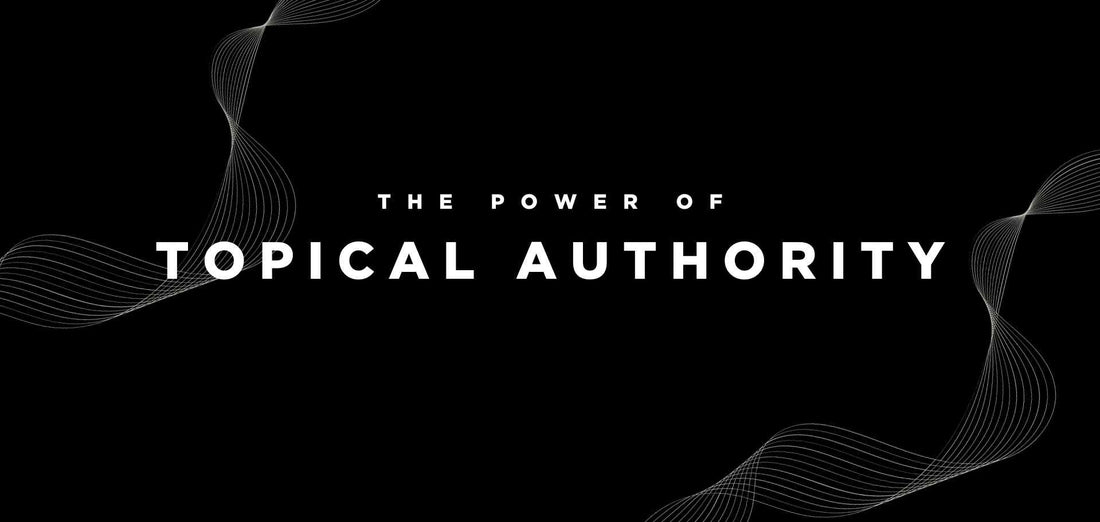One concept that has gained prominence in recent times is "Topical Authority." This approach to SEO involves establishing your website as an authoritative source on specific topics, not just
as a general expert. In this post, we will delve into the nuances of topical authority and explore how it can be a game-changer for your SEO strategy.
Understanding Topical Authority:
Topical authority goes beyond traditional keyword optimisation. It's about becoming a go-to resource for information on a particular subject or niche. Search engines have become
increasingly sophisticated in assessing content quality and relevance. With topical authority, your website is not just recognised for individual keywords but for the depth and breadth of your knowledge on a specific topic.
The Benefits of Topical Authority for SEO:
1. Enhanced Rankings
By establishing topical authority, you signal to search engines that your website is a credible and reliable source for information within a specific niche. This can lead to higher rankings for relevant search queries.
2. Builds Trust and Credibility
Topical authority is synonymous with expertise. When your website consistently delivers valuable content within a niche, it builds trust and credibility with your audience. Users are more likely to view your site as a reliable source, fostering brand loyalty.
3. Long-Term Sustainability
Unlike chasing short-term trends, building topical authority focuses on creating evergreen content that remains relevant over time. This approach ensures that your website remains valuable to users and search engines in the long run.
Topical authority mapping is a strategic process that involves identifying, organising, and optimising content around specific topics to establish your website as an authoritative source in a
particular niche.
Here's a step-by-step guide to help you create a topical authority map:
1. Identify Your Niche or Topic:
Choose a specific niche or topic that aligns with your business goals and expertise. This should be a subject that resonates with your target audience and has relevance to your industry.
2. Conduct Keyword Research:
Use keyword research tools like Google Keyword Planner, SEMrush, or Ahrefs to identify relevant keywords and phrases associated with your chosen topic. Consider both short-tail and long-tail keywords.

3. Create a Topic Cluster:
A topic cluster is a pillar page (main topic) surrounded by a cluster of related content (subtopics). Start by creating a comprehensive pillar page that covers the core aspects of your chosen topic.
4. Identify Subtopics and Long-Tail Keywords:
Break down the main topic into subtopics and long-tail keywords. Each subtopic should be a specific aspect of the main topic, and long-tail keywords should address more specific queries related to the subtopics.
5. Map Out Content Relationships:
Visualise the relationships between the pillar page, subtopics, and individual pieces of content. Use mind mapping tools, spreadsheets, or specialised content planning tools to organise the hierarchy and connections.

6. Establish Internal Linking:
Link your content strategically by incorporating internal links between related articles. This not only improves user navigation but also signals to search engines the depth and relevance of your content on the chosen topic.
7. Create High-Quality Content:
Develop high-quality, informative, and engaging content for each subtopic. Aim to
provide value to your audience by addressing their questions, concerns, or challenges related to the chosen topic. Don’t forget to optimise all elements.
8. Diversify Content Formats
Experiment with various content formats, including blog posts, infographics, videos, podcasts, and more. Diversifying your content portfolio can cater to different audience preferences and enhance your topical authority.
9. Develop a Consistent Publishing Schedule:
Establish a regular content publishing schedule to demonstrate ongoing commitment to your chosen topic. Consistency is crucial for building and maintaining topical
authority over time.
10. Monitor and Update:
Regularly monitor the performance of your content and make data-driven decisions. Keep abreast of changes in your industry and update your content accordingly to ensure its relevance.
11. Promote and Build Authority:
Actively promote your content through various channels and aim to build quality backlinks from reputable websites. Backlinks from authoritative sources can significantly boost your topical authority.
Conclusion:
In the competitive area of SEO, embracing the concept of topical authority can set your website apart from the rest. By following these steps and continually refining your approach
based on analytics and industry developments, you can successfully create and implement a topical authority mapping strategy that enhances your website's SEO, builds trust and credibility with your audience and establishes you as a leader in your chosen niche.
Looking for help with your content strategy or with SEO? Get in touch now.

